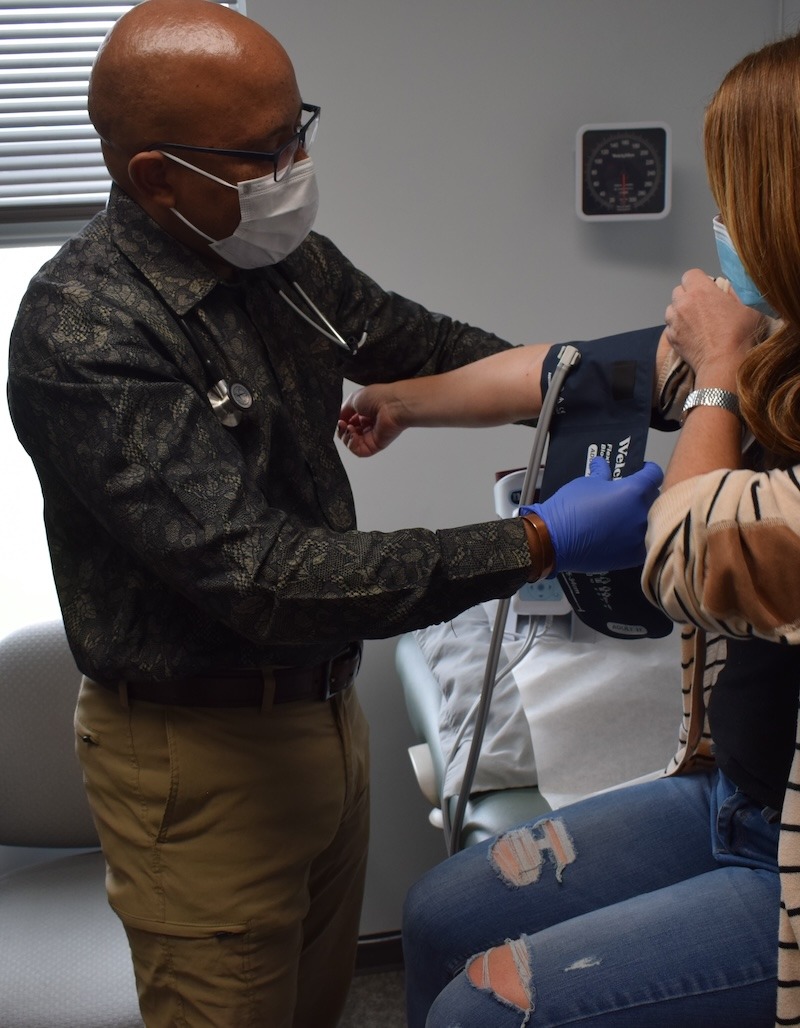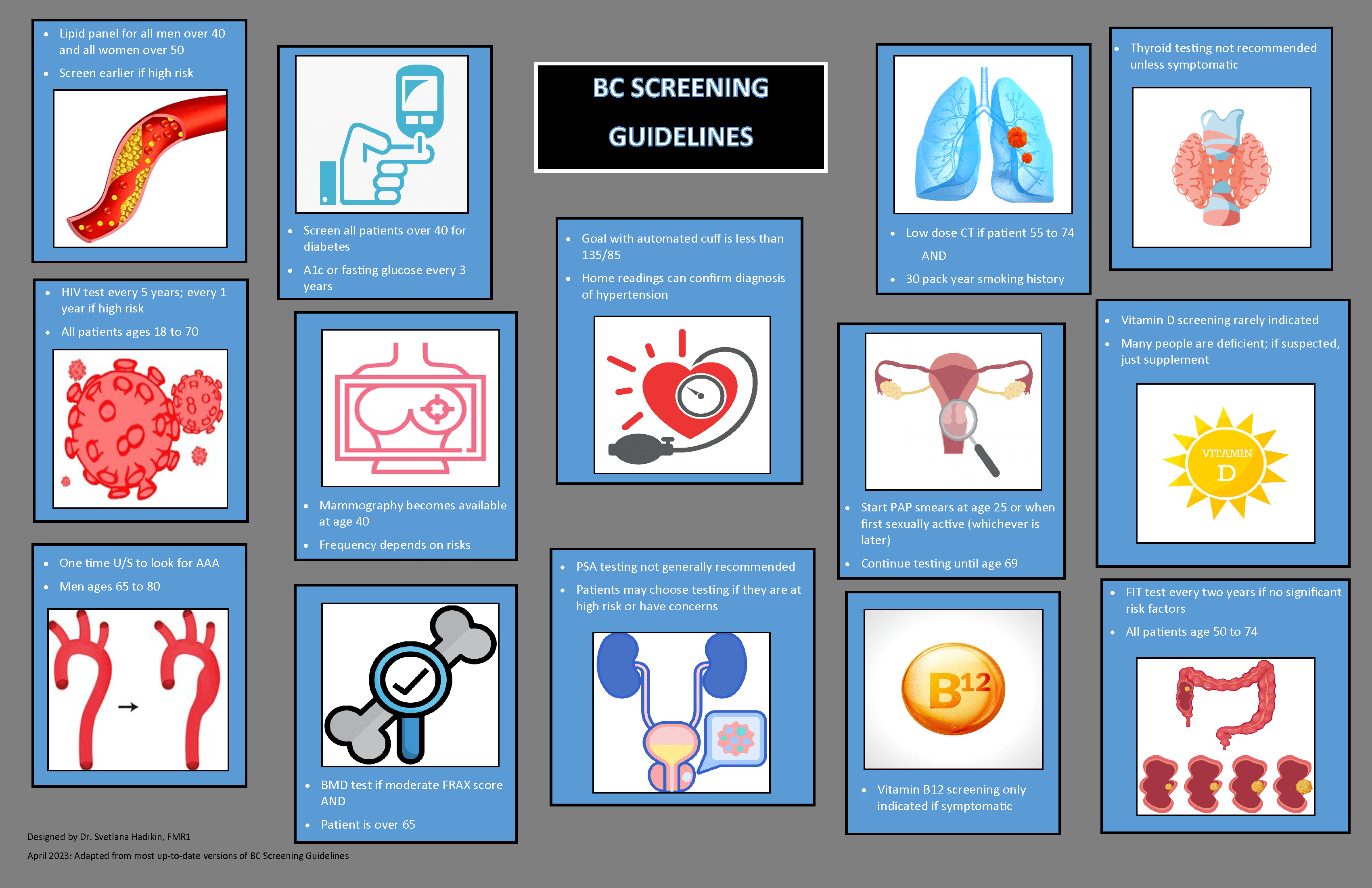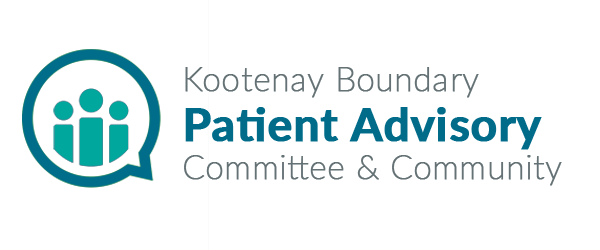Empowering the Citizen Patient

Article #7
Healthy People, Healthy Communities –
The Benefits of Early Screening for Your Health & Launch of KBScreen.ca Service
In this article of our monthly 10-part “Empowering the Citizen Patient” series, Dr. Mindy Smith, retired family physician and active member of the Kootenay Boundary Patient Advisory Committee, shares the benefits of early screening for your health. Join us as we continue our journey to empower both patients and those who care for them.
For many of us, staying healthy, especially as we age, is a top priority. One of the most effective ways to maintain health is through what practitioners call ‘preventive care’, including screening tests that can identify health problems before you have symptoms. This kind of early detection can significantly alter the course of many diseases, particularly chronic conditions like diabetes, hypertension, and cancer. They help catch issues before they become severe, greatly improving the chances of successful treatment.
Detecting Health Problems Early
A whole range of health problems can be detected with screening, from high blood pressure and diabetes to more subtle conditions like hearing and vision loss. Early detection of these conditions can prevent serious consequences such as heart attacks, strokes, and accidents due to sensory impairments.
The Canadian Lifetime Prevention Schedule, available online, guides you to the types of prevention screenings that you might need based on your age and family history. While not all tests are guaranteed to improve outcomes, the benefits of preventive screening are proven, with an estimated reduction in death rates due to the targeted diseases of 10-30%.

Types of Screening You Might Need

For many of us, staying healthy, especially as we age, is a top priority. One of the most effective ways to maintain health is through what practitioners call ‘preventive care’, including screening tests that can identify health problems before you have symptoms. This kind of early detection can significantly alter the course of many diseases, particularly chronic conditions like diabetes, hypertension, and cancer. They help catch issues before they become severe, greatly improving the chances of successful treatment.

Start Screening Early!
For families, the importance of screening starts early. When I was in practice, I recommended a vision test once for children between ages 3-5 years and regular check-ups to monitor their growth, weight and overall development. Check out kb.fetchbc.ca for a list of services available in Kootenay Boundary, including free developmental check-ins with early childhood professionals through the family action network (FAN) for residents of the Lower Columbia.
BC’s Medical Service Plan covers yearly optometrist visits for children through the BC Healthy Kids Program – though some clinics will charge a small fee. During adolescence, additional screenings for tobacco and substance use, and for mental health issues are crucial. Catching mental health concerns early can be life-saving, especially during the stressful teen years.
For Adults
For adults, checking for high blood pressure at least once every 2 years is recommended. This can be done at a clinician’s office, pharmacy, or during local screening events. Blood pressure machines are also available at many stores and are easy to use and very helpful for tracking how well high blood pressure treatments are working.
Talking with your healthcare provider, an Aboriginal Health Coordinator and family may be a good way to begin thinking about what screening may be right for you. Consider asking for a risk assessment test, every 3-5 years, to help determine if you should be screened for high blood sugar (diabetes) and heart disease, and how often. For men who are or were smokers, an ultrasound scan can detect an aneurysm (weakness in the wall) of the aorta; if large, surgical repair can prevent death from rupture. Shared decision making with your care provider is an empowering tool to understand what screening may be best for you and your family members.
Osteoporosis, another condition that can be stealthy yet debilitating, affects nearly 27% of women over 65 years. A one-time scan, called DEXA, can lead to early treatment and prevent serious fractures.
Several infections can be detected and successfully treated to prevent long-term complications. These include sexually-transmitted infections (recommended for sexually-active adolescents and others at high risk or during pregnancy) and hepatitis C (for those born between 1945-1965).
Cancer screenings are available for breast (every 2-3 years for biological females age 50-74 years), cervical (every 3 years ages 25-69 years with conventional testing or every 5 years for ages 30-65 using HPV-based testing), colon (stool testing every 2 years or colonoscopy every 10 years for ages 50-74 years), and lung cancer (yearly for 3 years for smokers or former smokers ages 55-74 years). Free mammograms for breast cancer screening for people age 40 and older can be scheduled by calling 1-800-663-9203, but you must have a current healthcare provider. Your clinician can perform cervical cancer screening using a PAP or HPV test, provide test kits for stool testing for colon cancer, and refer patients for colonoscopy or lung cancer screening. You can order a free cervical cancer test kit to do self-testing for the HPV virus with or without a healthcare provider by calling 1-877-702-6566 or online at BC Cancer Cervix Screening.
Introducing the KBScreen.ca Service!
In a step towards increasing accessibility to these vital preventive services, a new virtual clinic in Kootenay Boundary opened in June 2024. The KBScreen.ca clinic helps arrange screenings for patients who do not have a family practitioner including breast, cervical, colon and lung cancer as well as abdominal aortic aneurysm, HIV and syphilis testing.
“Our goal is to ensure that everyone, especially those without a primary care practitioner, has access to necessary preventive care,” said Tanya Peever, the clinic’s Nurse Practitioner.
For more information, patients are asked to visit KBScreen.ca. And if you do not have a family practitioner, please register as soon as possible on Kootenay Boundary’s Health Connect Registry at kbhcr.ca.

Preventive care through screening not only saves lives but also enhances the quality of life, proving that a little foresight can go a long way!
We would love to hear from you!
Please take 3 minutes to give us your feedback on this article!
-
- What did you think of this article?
- What could we do better?
- Any suggestions for other articles that would be helpful?
Please complete our short survey here!

Get the articles direct to your inbox!
